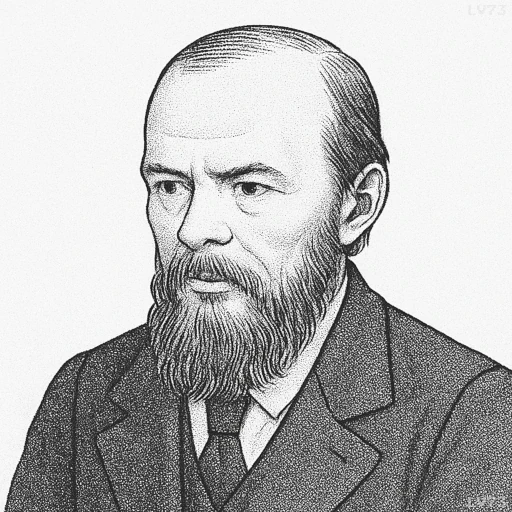“The formula ‘Two and two make five’ is not without its attractions.”

- November 11, 1821 – February 9, 1881
- Born in the Russian Empire
- Novelist, philosopher
table of contents
Quote
“The formula ‘Two and two make five’ is not without its attractions.”
Explanation
Dostoevsky’s quote plays with the idea of illusion and the manipulation of truth. The statement “Two and two make five” is an inherently false mathematical proposition, yet Dostoevsky suggests that it holds a certain appeal or attraction. This attraction is not to the logic of the equation itself, but rather to the desire to believe in something despite its inherent falsity. It speaks to the human tendency to embrace comforting or convenient falsehoods, even when they contradict reason or objective reality. In Dostoevsky’s time, such a statement could be seen as a critique of the social and political forces that demanded people accept ideological truths that were, in reality, manipulated or contrived.
The context in which this idea might resonate is rooted in Dostoevsky’s skepticism of the emerging ideologies of his day, particularly utopian ideals and authoritarianism. He was critical of systems that sought to impose a single absolute truth, forcing individuals to conform to a worldview that didn’t necessarily align with individual freedom or personal integrity. In this way, “Two and two make five” could be a metaphor for the ways in which governments, religious authorities, or social movements manipulate facts to maintain control or suppress dissent. By accepting falsehoods, individuals may find security or belonging, even at the cost of truth.
In the modern world, the quote remains highly relevant in the context of propaganda, disinformation, and political manipulation. In an era of alternative facts, where truth is often subject to interpretation, people may be drawn to ideologies or narratives that simplify complex realities, even when these narratives are demonstrably false. Social media platforms, with their ability to create echo chambers, and the rise of post-truth politics highlight how people can be attracted to beliefs that align with their preconceptions or emotions, even if they are logically flawed. Dostoevsky’s quote invites us to question the allure of false assurances and to remain vigilant in our pursuit of truth, even when the temptation to embrace comforting lies is strong.
Would you like to share your impressions or related stories about this quote in the comments section?

